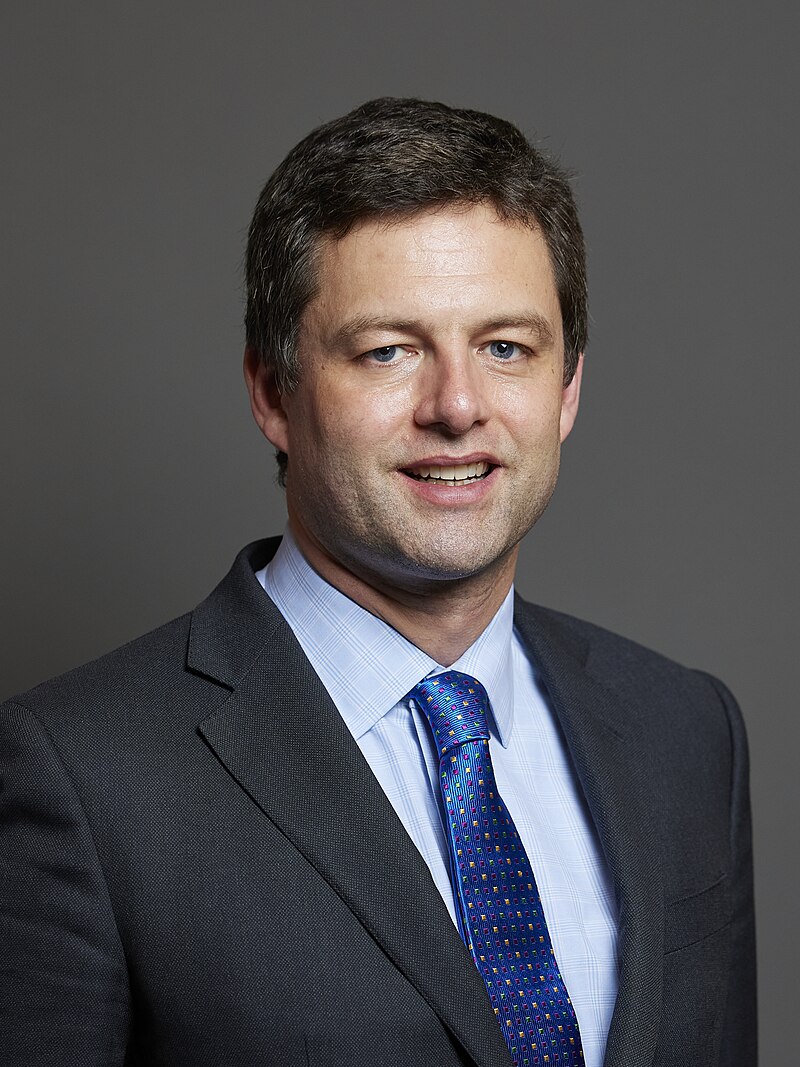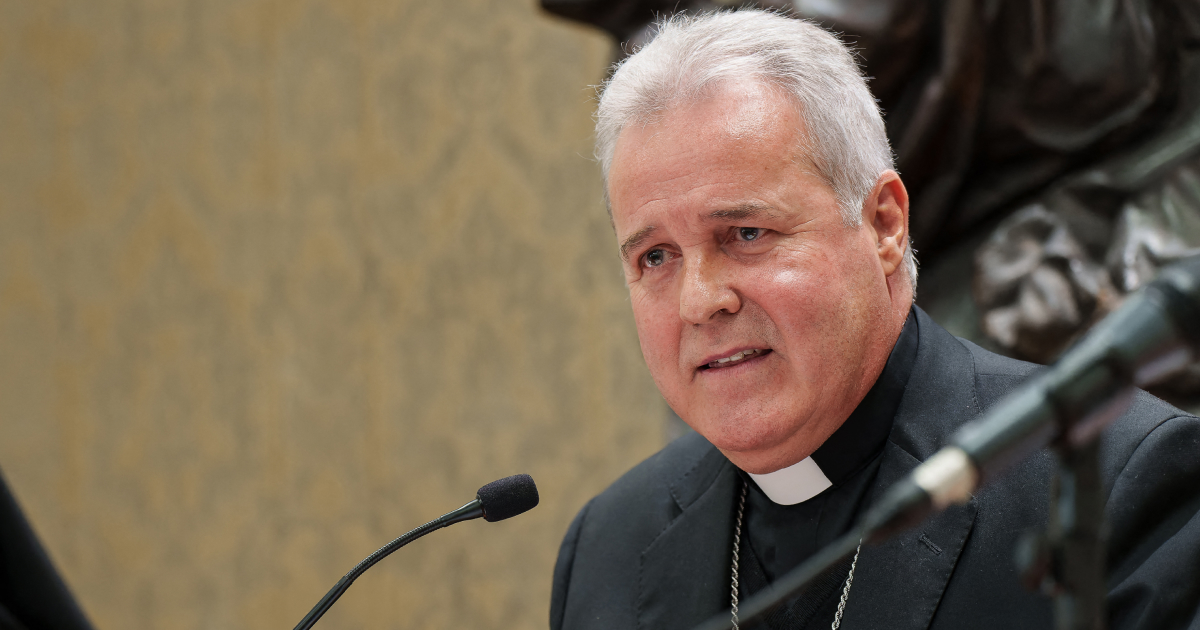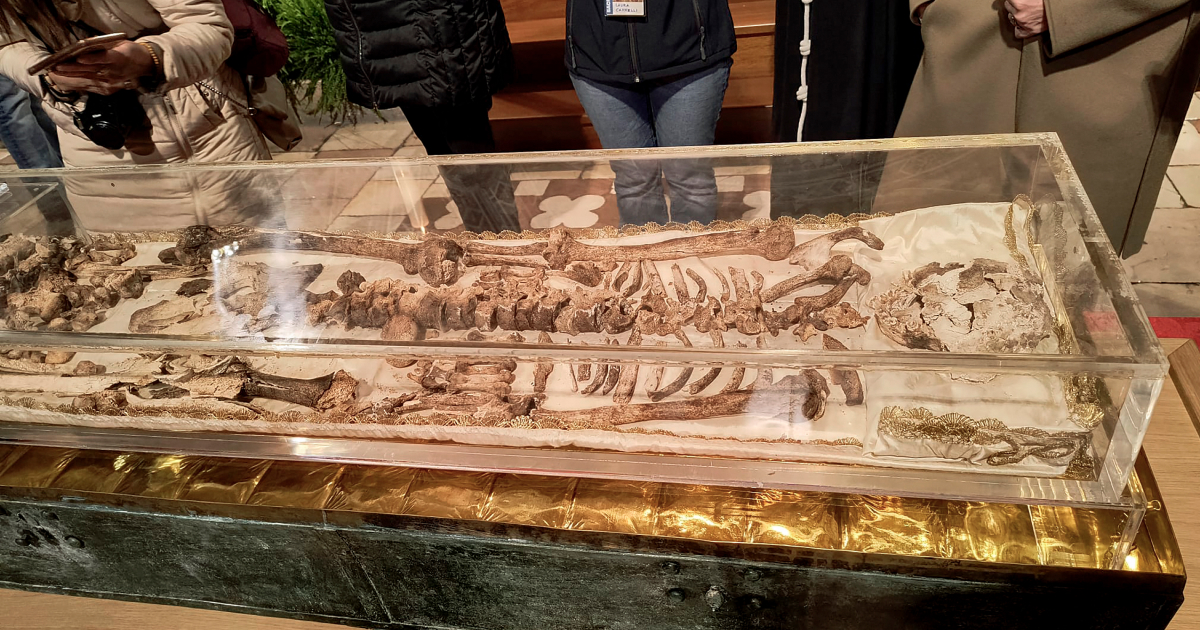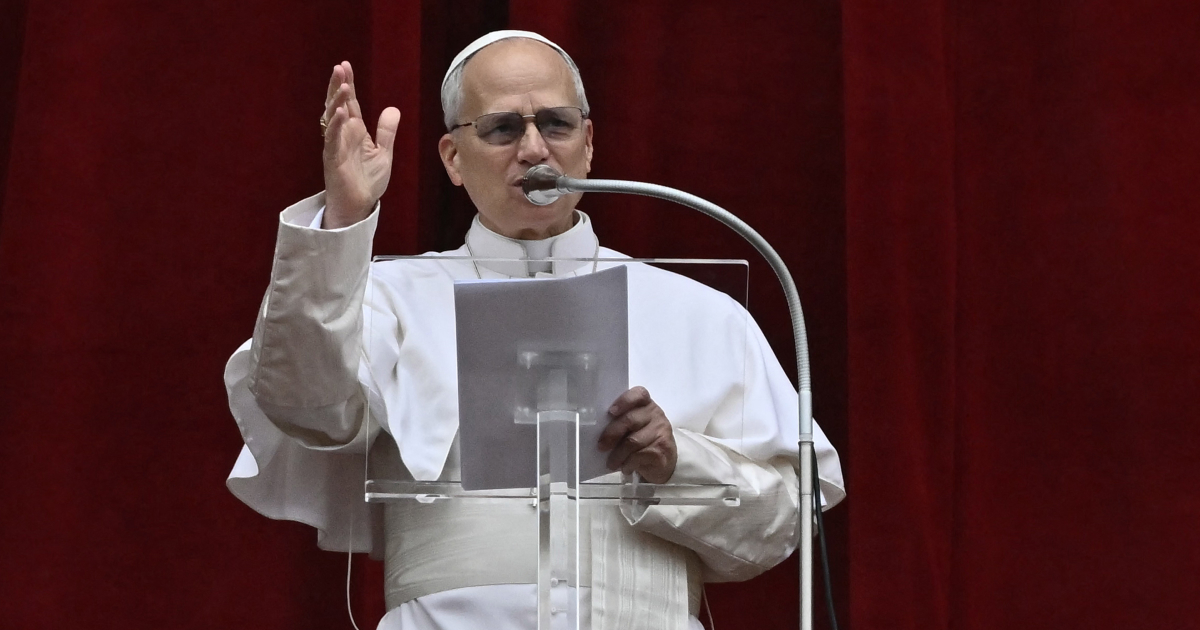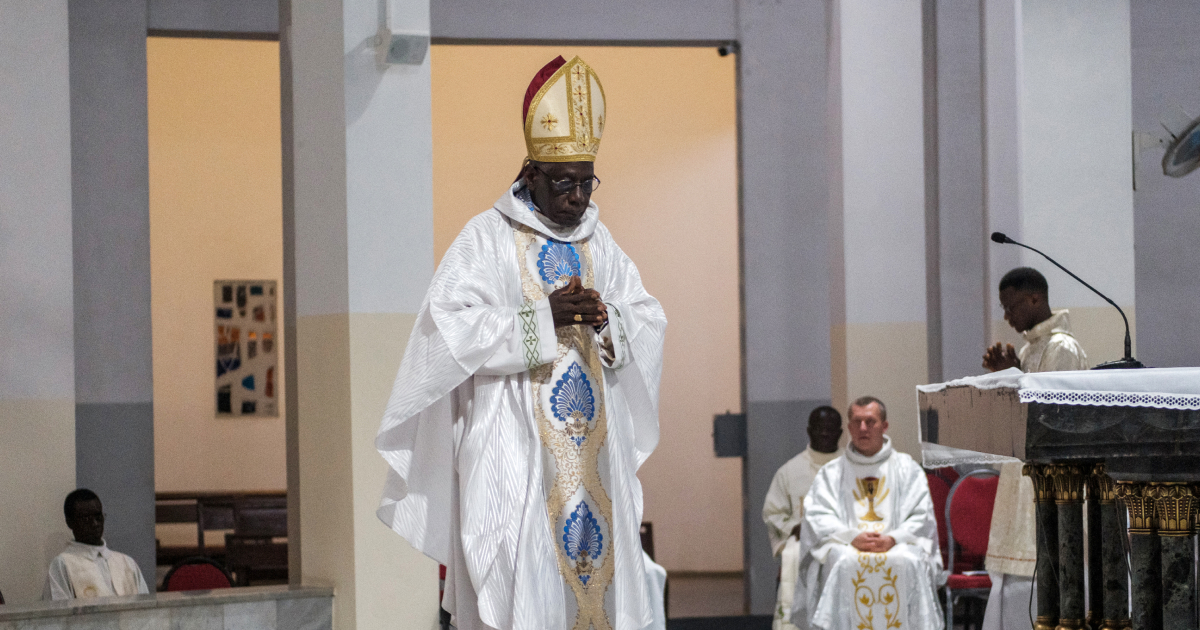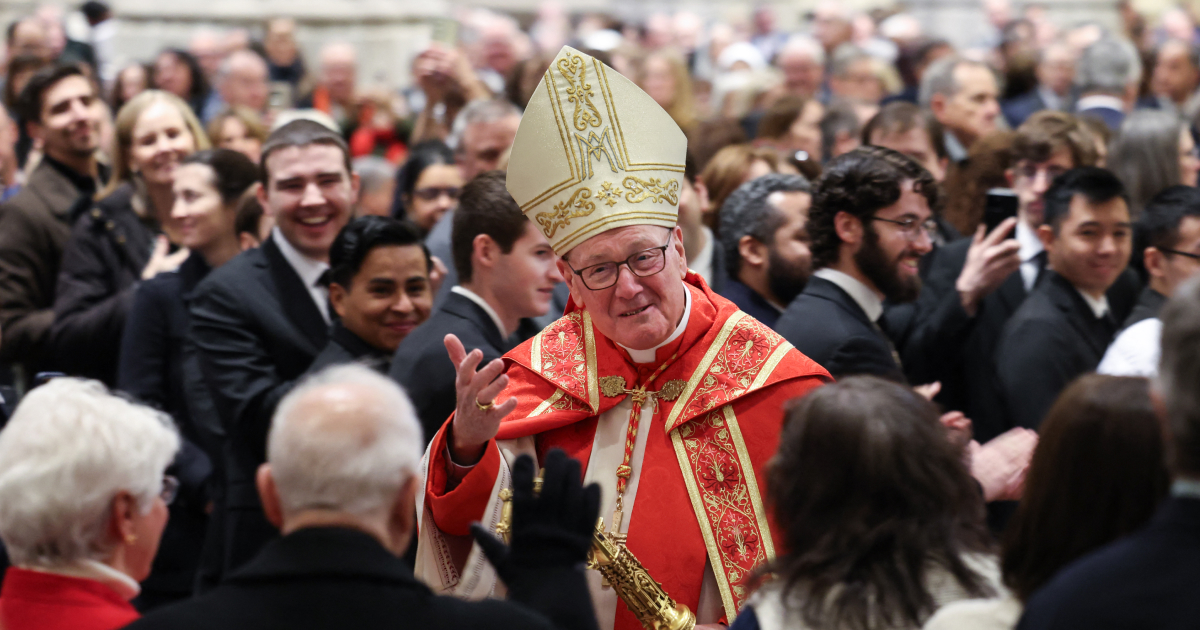A priest has refused Holy Communion to Liberal Democrat MP Chris Coghlan over his vote in favour of the UK’s assisted suicide bill on 20 June. Coghlan, who represents Dorking and Horley in Surrey, was then named from the pulpit during Mass two days later, as the country moved a step closer to legalising state assisted death.
Coghlan called the priest’s actions “outrageous” and has lodged a complaint with Bishop Richard Moth, Bishop of Arundel and Brighton, over what he described as an attempt to coerce an elected lawmaker’s vote.
However, Bishop Moth has been a vocal opponent of the bill, asking Catholics in his diocese to write to their MPs to oppose it. In a pastoral letter, the bishop said: “Rather than offer ‘choice’ – as has been suggested – it will, instead, potentially impose significant pressure on people who are at a very vulnerable time in their lives, especially the elderly and those living with disabilities.”
Father Ian Vane, the pastor of St Joseph’s Catholic Church in Dorking, wrote to Coghlan before the vote to warn that a “yes” vote would be a “clear contravention” of Church teaching and even a “murderous act”, reports the Observer. Vane cautioned that such a decision would leave Coghlan “obstinately persevering” in sin and that giving him Communion would “cause scandal”.
The Sunday after the Commons vote, Vane followed through on his threat. He told parishioners during Mass that their MP would be refused Communion because of “the way he had voted”. The priest repeated the announcement at a later Mass with about 150 people present, though Coghlan was not present at either.
On X, Coghlan condemned the public rebuke as “utterly disrespectful” and said that “my private religion will continue to have zero direct relevance to my work as an MP”.
Kim Leadbeater, the Labour MP who introduced the assisted dying bill, also criticised the priest’s actions. Leadbeater said that while people of faith have every right to express their views to elected representatives, Coghlan was “very brave and principled” to resist undue pressure and vote in line with his conscience.
Neither MP has acknowledged or addressed the Catholic Church’s teaching that assisted suicide is a grave violation of the sanctity of life and leaves the vulnerable in danger of coercion. Neither have they publicly recognised that the Church teaches that publicly legislating in its favour prevents politicians from receiving Communion until they have repented.
Catholic leaders in Britain have continued to be vocal in opposing efforts to legalise assisted dying. After the Commons approved the bill this month by a narrow 23-vote margin, Archbishop John Sherrington said he was “shocked and disappointed” by the outcome and warned that allowing doctors to help patients end their lives would erode the culture of care and create fear among vulnerable people.
According to parliamentary procedure, the bill received its First Reading in the House of Lords on 23 June 2025. The Second Reading, when peers debate the general principles of the bill, is expected during either July or September, with reports suggesting 12 September as a likely date.
Following the Second Reading, the bill will progress to Committee Stage, where each clause is scrutinised. This is anticipated to take place in November, with a Report Stage in December. If the bill is delayed beyond the current session, expected to end in May 2026, it would fall.
It is not conventional for the House of Lords to block bills which have ascended through the House of Commons. However, the bill’s narrow majority, its not being part of Labour's manifesto, and the considerable presence of medical professionals in the House of Lords who will likely take issue with its alleged “safeguards” may prevent it becoming law.
A priest has refused Holy Communion to Liberal Democrat MP Chris Coghlan over his vote in favour of the UK’s assisted suicide bill on 20 June. Coghlan, who represents Dorking and Horley in Surrey, was then named from the pulpit during Mass two days later, as the country moved a step closer to legalising state assisted death.
Coghlan called the priest’s actions “outrageous” and has lodged a complaint with Bishop Richard Moth, Bishop of Arundel and Brighton, over what he described as an attempt to coerce an elected lawmaker’s vote.
However, Bishop Moth has been a vocal opponent of the bill, asking Catholics in his diocese to write to their MPs to oppose it. In a pastoral letter, the bishop said: “Rather than offer ‘choice’ – as has been suggested – it will, instead, potentially impose significant pressure on people who are at a very vulnerable time in their lives, especially the elderly and those living with disabilities.”
Father Ian Vane, the pastor of St Joseph’s Catholic Church in Dorking, wrote to Coghlan before the vote to warn that a “yes” vote would be a “clear contravention” of Church teaching and even a “murderous act”, reports the <em>Observer</em>. Vane cautioned that such a decision would leave Coghlan “obstinately persevering” in sin and that giving him Communion would “cause scandal”.
The Sunday after the Commons vote, Vane followed through on his threat. He told parishioners during Mass that their MP would be refused Communion because of “the way he had voted”. The priest repeated the announcement at a later Mass with about 150 people present, though Coghlan was not present at either.
On X, Coghlan condemned the public rebuke as “utterly disrespectful” and said that “my private religion will continue to have zero direct relevance to my work as an MP”.
Kim Leadbeater, the Labour MP who introduced the assisted dying bill, also criticised the priest’s actions. Leadbeater said that while people of faith have every right to express their views to elected representatives, Coghlan was “very brave and principled” to resist undue pressure and vote in line with his conscience.
Neither MP has acknowledged or addressed the Catholic Church’s teaching that assisted suicide is a grave violation of the sanctity of life and leaves the vulnerable in danger of coercion. Neither have they publicly recognised that the Church teaches that publicly legislating in its favour prevents politicians from receiving Communion until they have repented.
Catholic leaders in Britain have continued to be vocal in opposing efforts to legalise assisted dying. After the Commons approved the bill this month by a narrow 23-vote margin, Archbishop John Sherrington said he was “shocked and disappointed” by the outcome and warned that allowing doctors to help patients end their lives would erode the culture of care and create fear among vulnerable people.
According to parliamentary procedure, the bill received its First Reading in the House of Lords on 23 June 2025. The Second Reading, when peers debate the general principles of the bill, is expected during either July or September, with reports suggesting 12 September as a likely date.
Following the Second Reading, the bill will progress to Committee Stage, where each clause is scrutinised. This is anticipated to take place in November, with a Report Stage in December. If the bill is delayed beyond the current session, expected to end in May 2026, it would fall.
It is not conventional for the House of Lords to block bills which have ascended through the House of Commons. However, the bill’s narrow majority, its not being part of Labour's manifesto, and the considerable presence of medical professionals in the House of Lords who will likely take issue with its alleged “safeguards” may prevent it becoming law.






